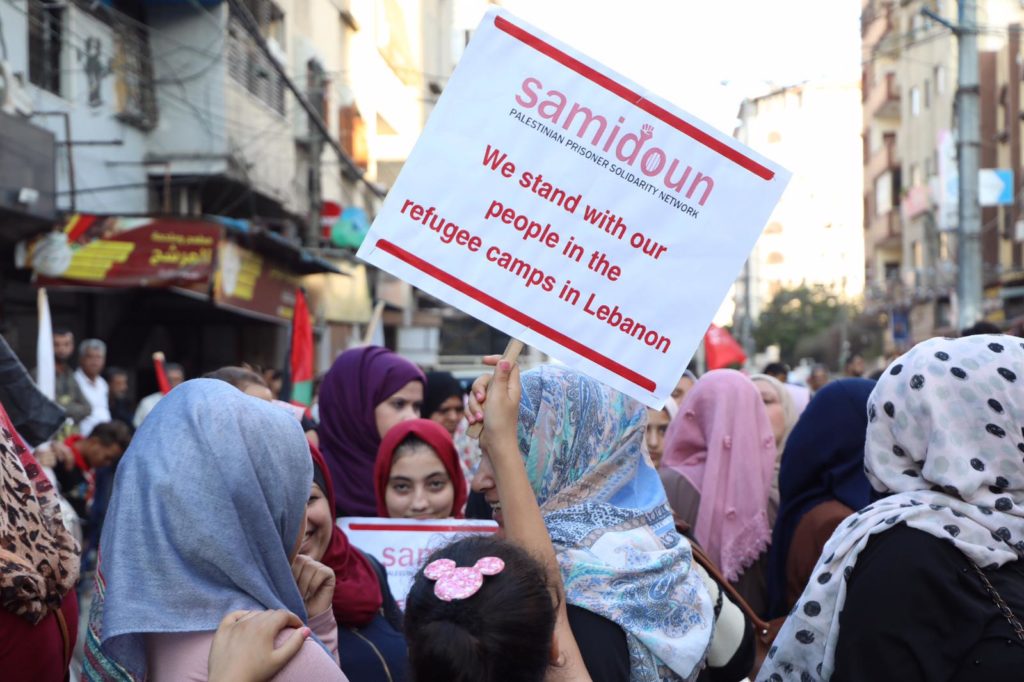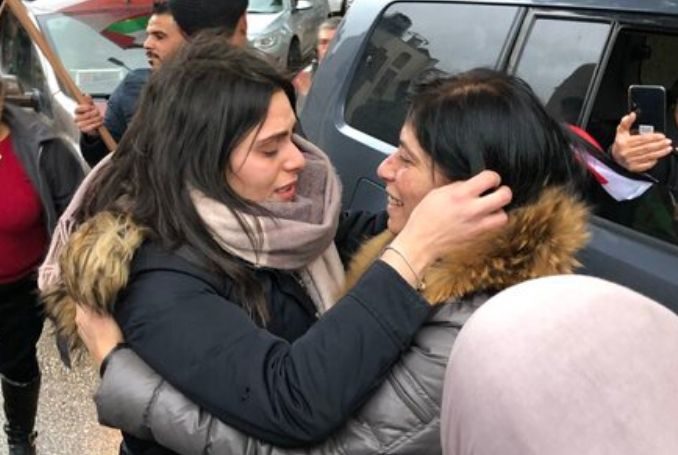
Samidoun Palestinian Prisoner Solidarity Network extends its deepest condolences to Khalida, Ghassan and Yafa Jarrar upon the tragic passing of Suha Jarrar, who died on Sunday, July 11 at the age of 31.
Suha, Khalida and Ghassan’s daughter, Yafa’s sister, was a tireless advocate for Palestinian rights and liberation, speaking around the world to advance Palestinian freedom.
At this horrendous moment for her and her family, Khalida Jarrar, Palestinian leader, feminist, parliamentarian and organizer, remains imprisoned in Israeli jails as a political leader, denied even the comfort of her loved ones. We extend our condolences to all who knew, loved and honored Suha and demand the immediate release of Khalida Jarrar to be among her family at this time.
Sign the petition to demand Khalida’s immediate release.
Update your Facebook profile with a frame demanding Khalida’s release.
**
Al-Haq, the Palestinian human rights organization, where Suha Jarrar worked, has filed an urgent appeal with UN Special Procedures for Khalida Jarrar’s immediate release.
**
We are also joining in the below appeal circulated by many Palestinian groups and organizers:
Instead of surrendering to the belief that revolutionary leader and former Palestinian Legislative Council member Khalida Jarrar will be denied the right to bury her daughter Suha, whose death was announced this evening, let us work locally and internationally to form the necessary pressure that will make it possible.
Khalida is a Palestinian political prisoner, who was arrested for her national political activism. She has the right to participate in her daughter’s funeral.
Khalida has been incarcerated for nearly two years and is due for release within two months. She has been arrested by the Israeli regime on many occasions, during which time she has been subjected to various forms of abuse and persecution.
The Israeli regime’s prison administration should release Khalida as soon as possible so that she can bury and mourn her daughter and exercise her most fundamental human rights.
Freedom for Khalida Jarrar
TAKE ACTION:
Sign and Share the Petition!
We urge all supporters of Palestine sign the petition to demand Khalida Jarrar’s immediate release and seek worldwide support: https://www.change.org/freekhalida
This petition addresses the United Nations and calls on human rights organizations like Amnesty International to take a stand for Khalida’s immediate freedom. Please note, if this petition site (Change.org) asks you to donate, any funds go to the petition site for promotion, not to Samidoun or to Khalida Jarrar’s family. We are not seeking publicity donations.
Join the Social Media Campaign
Post with the #FreeKhalidaJarrar hashtag and join Palestinians and supporters of justice around the world!
Protest at the Israeli Embassy or Consulate in Your Country!
Join the many protests taking place around the world — confront, isolate and besiege the Israeli embassy or consulate in your city or country of residence. Make it clear that the people are with Palestine! Send us your events at samidoun@samidoun.net.
Take to the streets: Organize a protest in solidarity with Palestine!
Hundreds of thousands – millions of people – around the world have marched and protested with Palestine, its people and its liberation over the past week. Your protest and organizing is also key to highlighting the campaign to free Khalida! Take to the streets and join the actions on our full list of events, which is constantly being updated as new actions are announced! Organize your own if there is none in your area, and send us your events at samidoun@samidoun.net.
Boycott Israel!
The international, Arab and Palestinian campaign to boycott Israel can play an important role at this critical time. Local boycott groups can protest and label Israeli produce and groceries. During Ramadan, Israeli dates from stolen Palestinian land are marketed around the world while Israel attempts to force Palestinians from Jerusalem, demolish homes, and imprisons thousands more. By participating in the boycott of Israel, you can directly help to throw a wrench in the economy of settler colonialism.
Demand Your Government Sanction Israel!
The racist, settler colonial state of Israel and its war crimes against the Palestinian people are enabled and backed extensively by the over $3.8 billion each year given to Israel by the United States — targeted directly to support the Israeli occupation military killing children, women, men and elders throughout occupied Palestine. From Canada to Australia to the European Union, Western governments and imperialist powers provide ongoing diplomatic, political and economic support to Israel as well as selling billions of dollars of weaponry to the settler-colonial state. Meanwhile, they also purchase billions of dollars in weaponry from the Israeli state. Governments in league with imperialist powers, such as in the Philippines, Brazil, India and elsewhere, also buy weapons and “security” services — all “battle-tested” on the Palestinian population. Call your representatives, MPs, political officials and demand your government sanction Israel now, cut off all aid, expel its ambassadors, and stop buying and selling weapons!
إطلاق حملة #الحرية_لخالدة_جرار محلياً ودولياً
بدلاً من أن نسلّم بأن المناضلة القيادية عضو المجلس التشريعي سابقاً خالدة جرار لن تودّع ابنتها سهى، والتي أعلن عن وفاتها مساء اليوم، وإذ تقبع جرار في سجون الاحتلال منذ ما يقارب عامين، ومن المفترض أن تنهي حكمها خلال شهرين، لنعمل محلياً ودولياً لتشكيل الضغط اللازم على إدارة سجون الاحتلال لتطلق سراح جرار في أقرب موعد حتى يتسنّى لها وداع ابنتها، وممارسة أبسط حقوقها الإنسانية.
جرار مناضلة فلسطينية، معتقلة على خلفية نشاطها السياسي الوطني، اعتقلت لدى قوات الاحتلال عدة مرات وصدر بحقها أمر إبعاد وأوامر منع سفر، وتعرضت لأشكال مختلفة من التنكيل والاضطهاد بنّاءً على نشاطها السياسي ودورها الوطني.
لخالدة الحق في أن تشارك في مراسم تشييع جثمان ابنتها.
الحرية لخالدة جرار
Liberté pour Khalida Jarrar
Au lieu de nous rendre à l’évidence que la leader révolutionnaire et ancienne membre du Conseil législatif palestinien Khalida Jarrar se verra refuser le droit d’enterrer sa fille Suha, dont la mort a été annoncée ce soir, travaillons localement et internationalement pour créer la pression nécessaire qui rendra cela possible.
Khalida est une prisonnière politique palestinienne, qui a été arrêtée pour son militantisme politique national. Elle a le droit de participer aux funérailles de sa fille.
Khalida est incarcérée depuis près de deux ans et doit être libérée d’ici deux mois. Elle a été arrêtée par le régime israélien à de nombreuses reprises et a subi diverses formes d’abus et de persécutions.
L’administration pénitentiaire du régime israélien doit libérer Khalida dès que possible afin qu’elle puisse enterrer et pleurer sa fille et exercer ses droits humains les plus fondamentaux.
Liberté pour Khalida Jarrar !
En lugar de aceptar el hecho de que a la líder revolucionaria y ex miembro del Consejo Legislativo Palestino Khalida Jarrar se le negará el derecho a enterrar a su hija Suha, cuya muerte fue anunciada esta noche, trabajemos local e internacionalmente para formar la presión necesaria que lo haga. posible.
Khalida ha estado encarcelado durante casi dos años y será liberado dentro de dos meses.
La administración penitenciaria del régimen israelí debe poner en libertad a Khalida lo antes posible para que pueda enterrar y llorar a su hija y ejercer sus derechos humanos más fundamentales.
Khalida es una prisionera política palestina, que fue arrestada por su activismo político nacional. Tiene derecho a participar en el funeral de su hija.
Posters and Resources
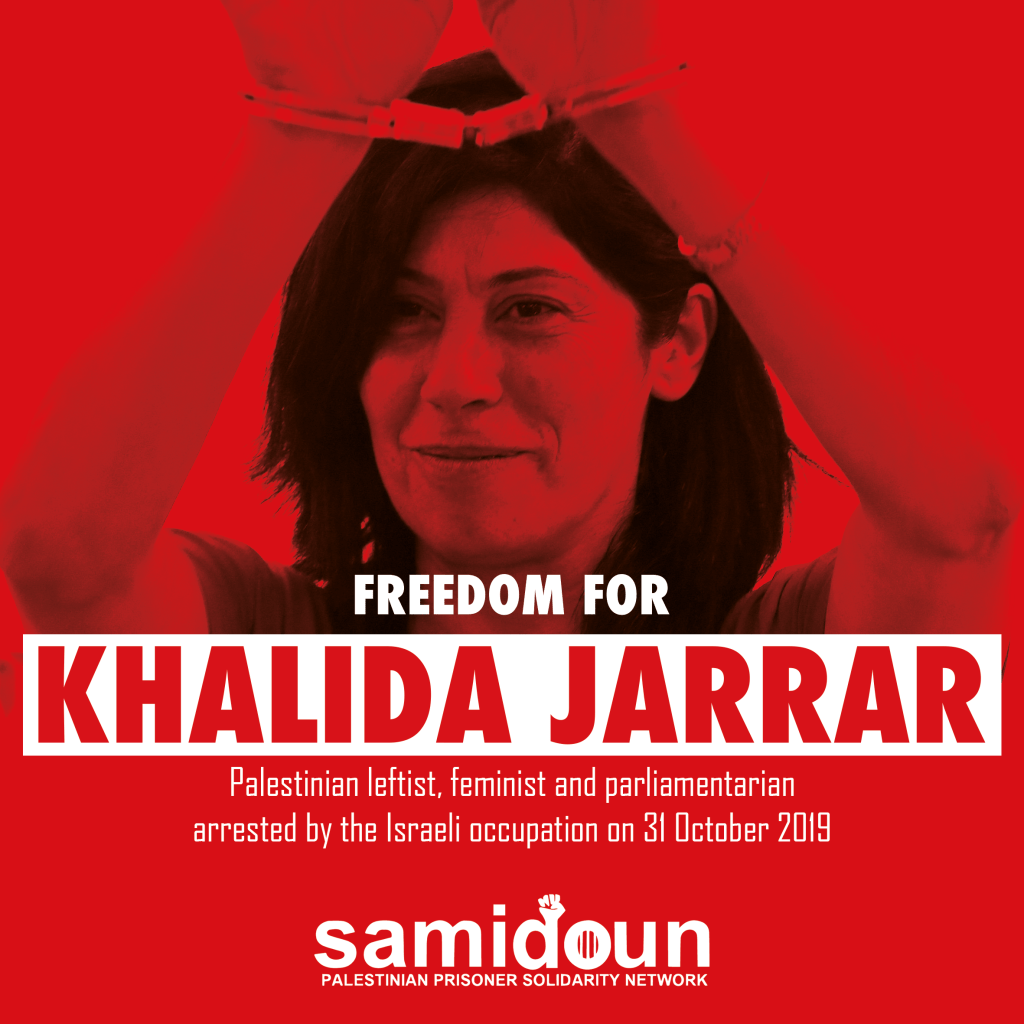
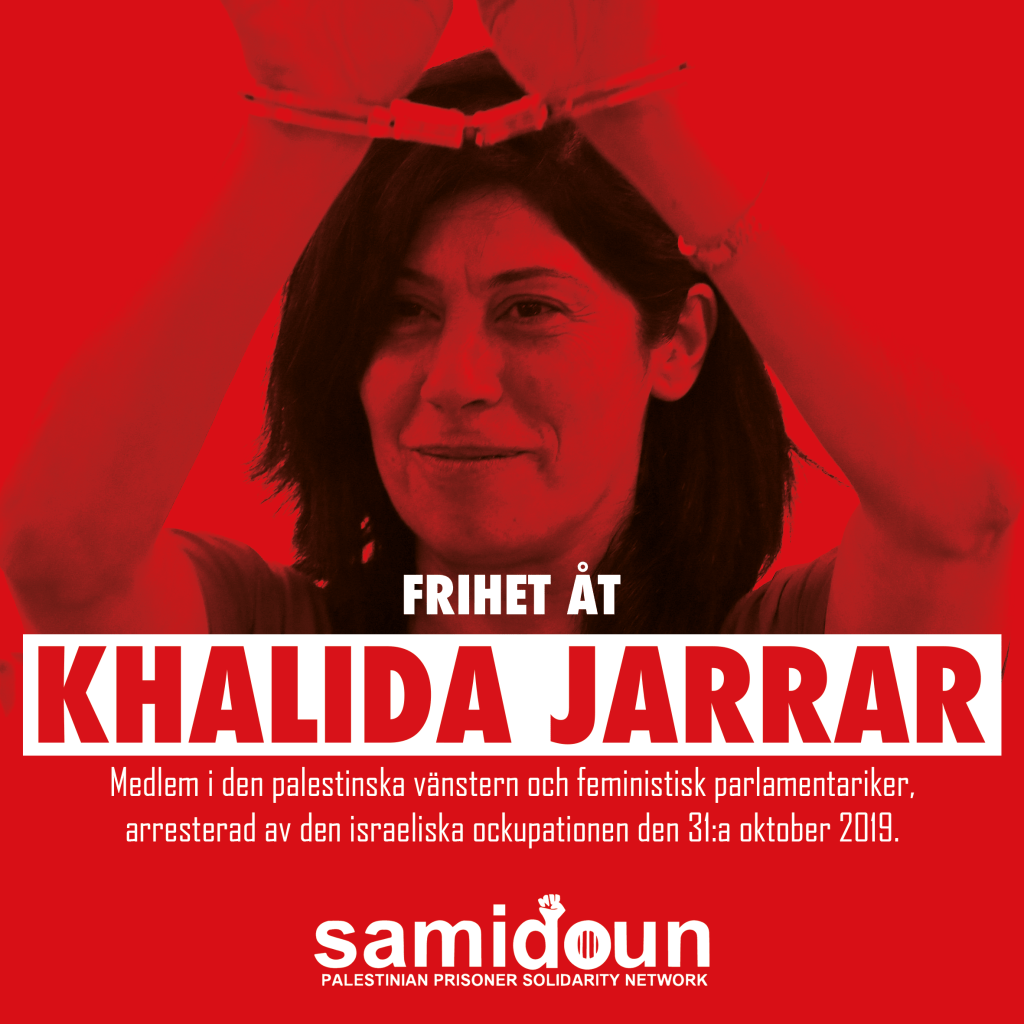
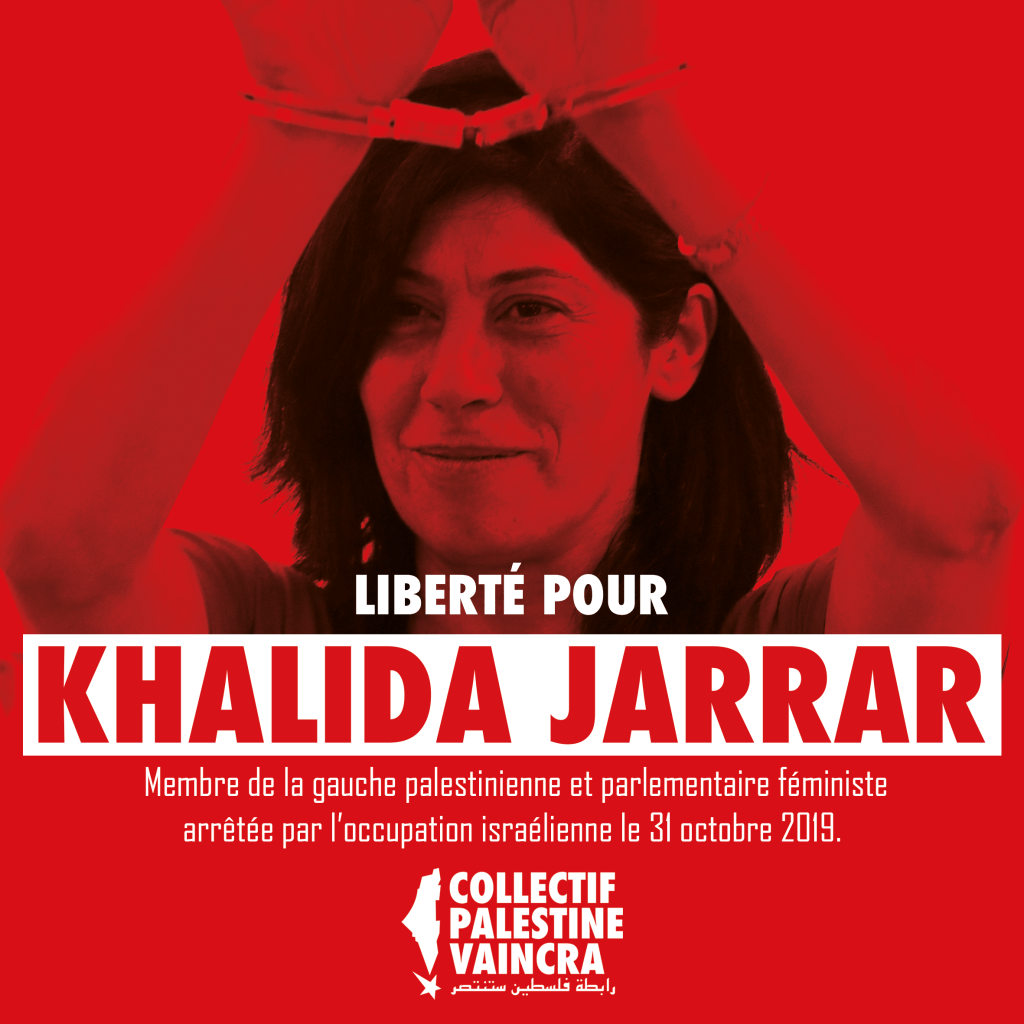
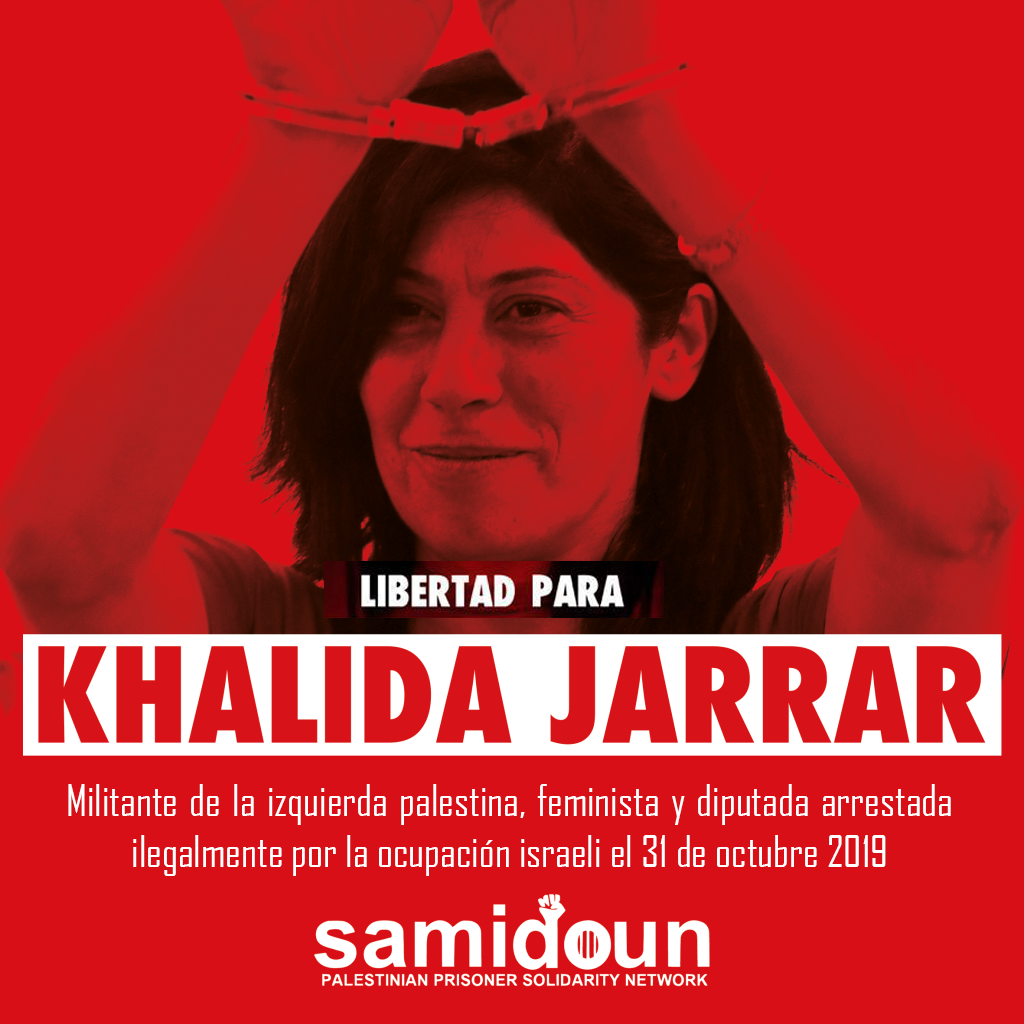
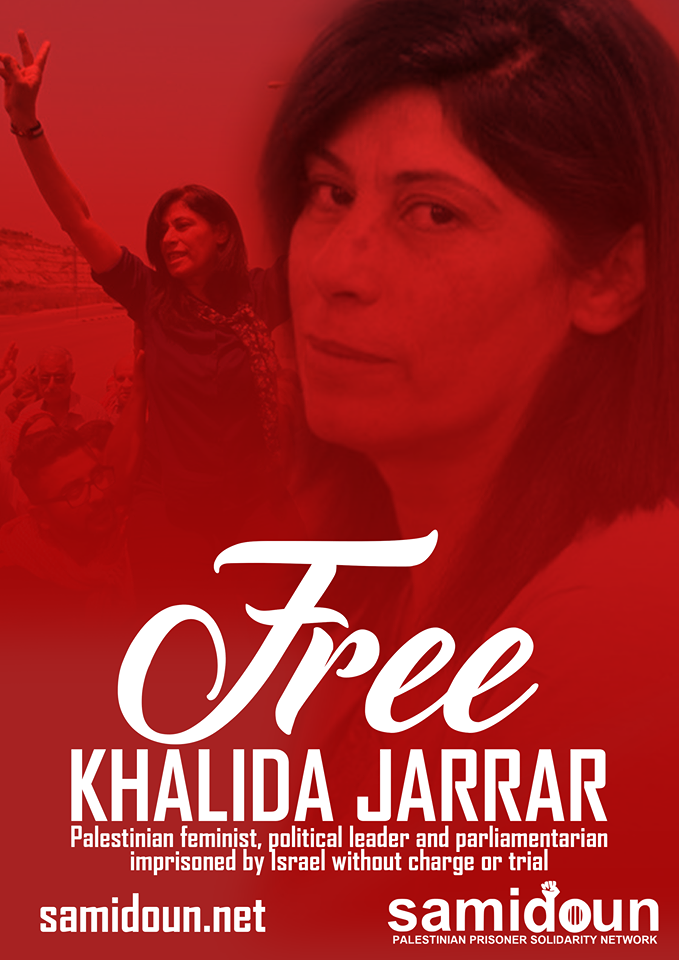
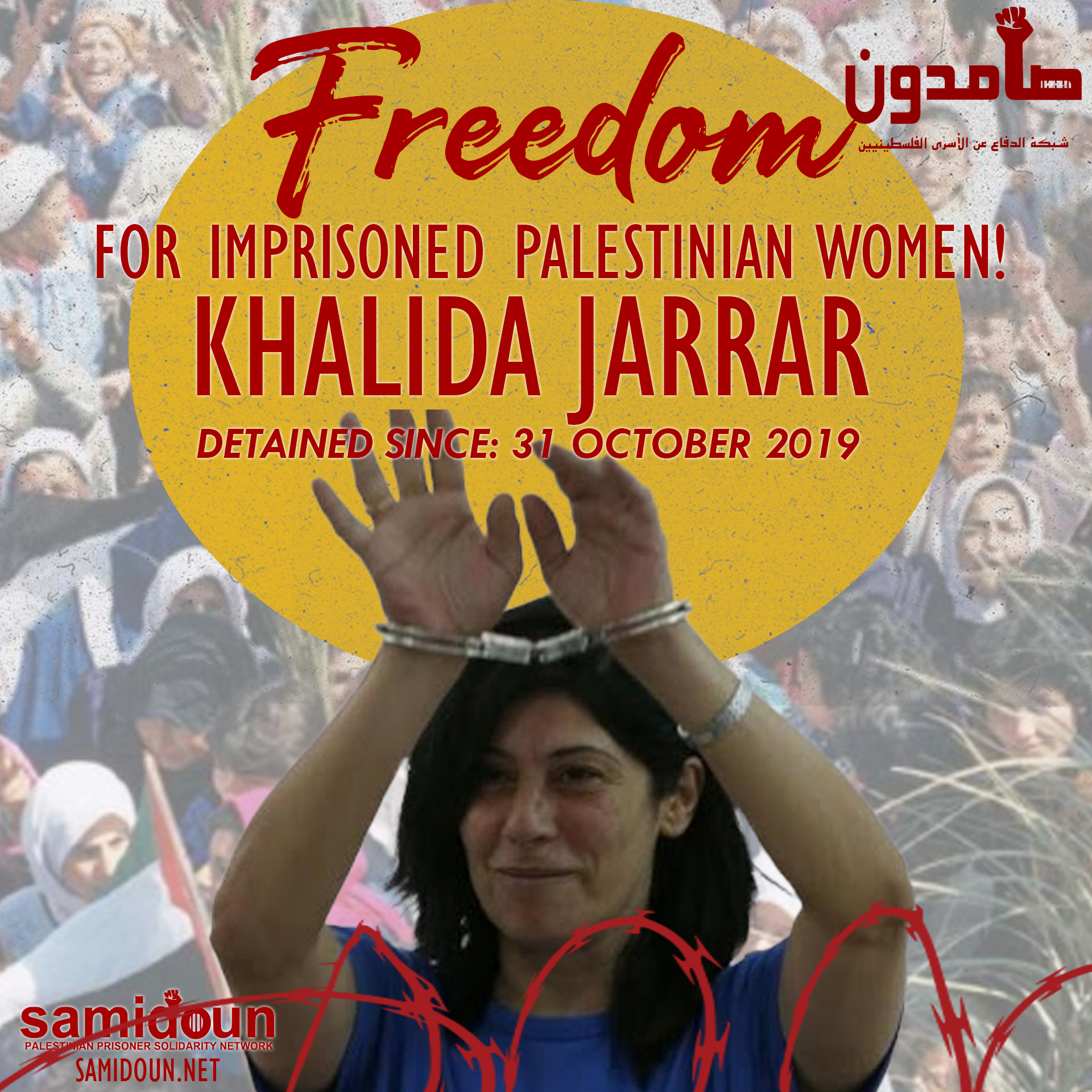
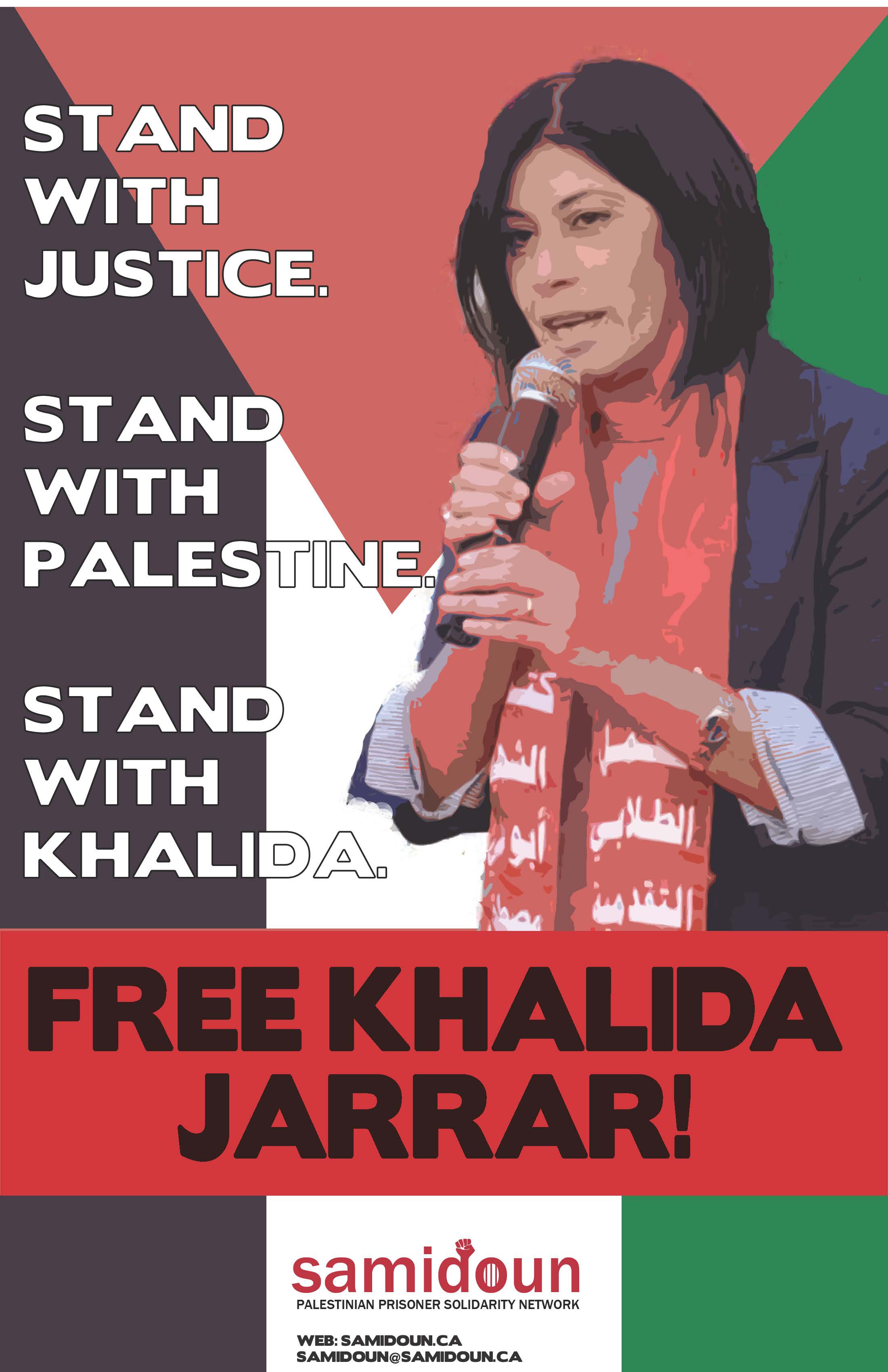
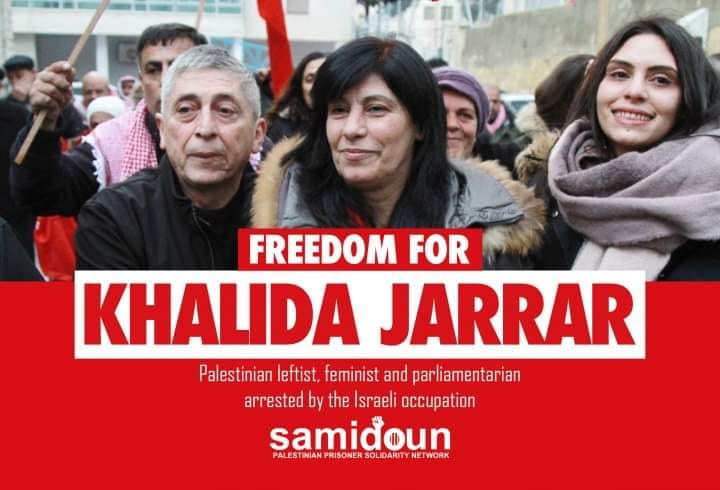
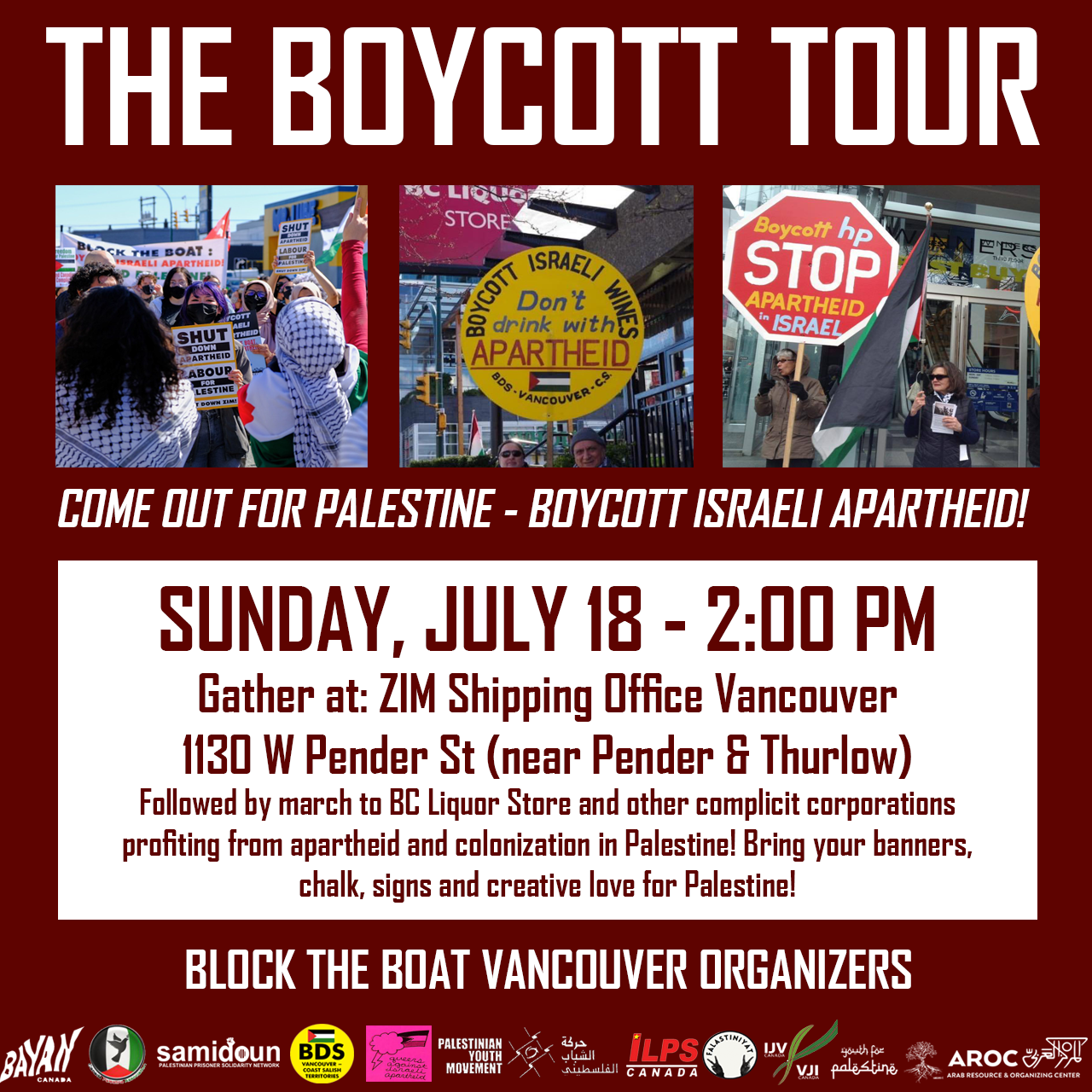

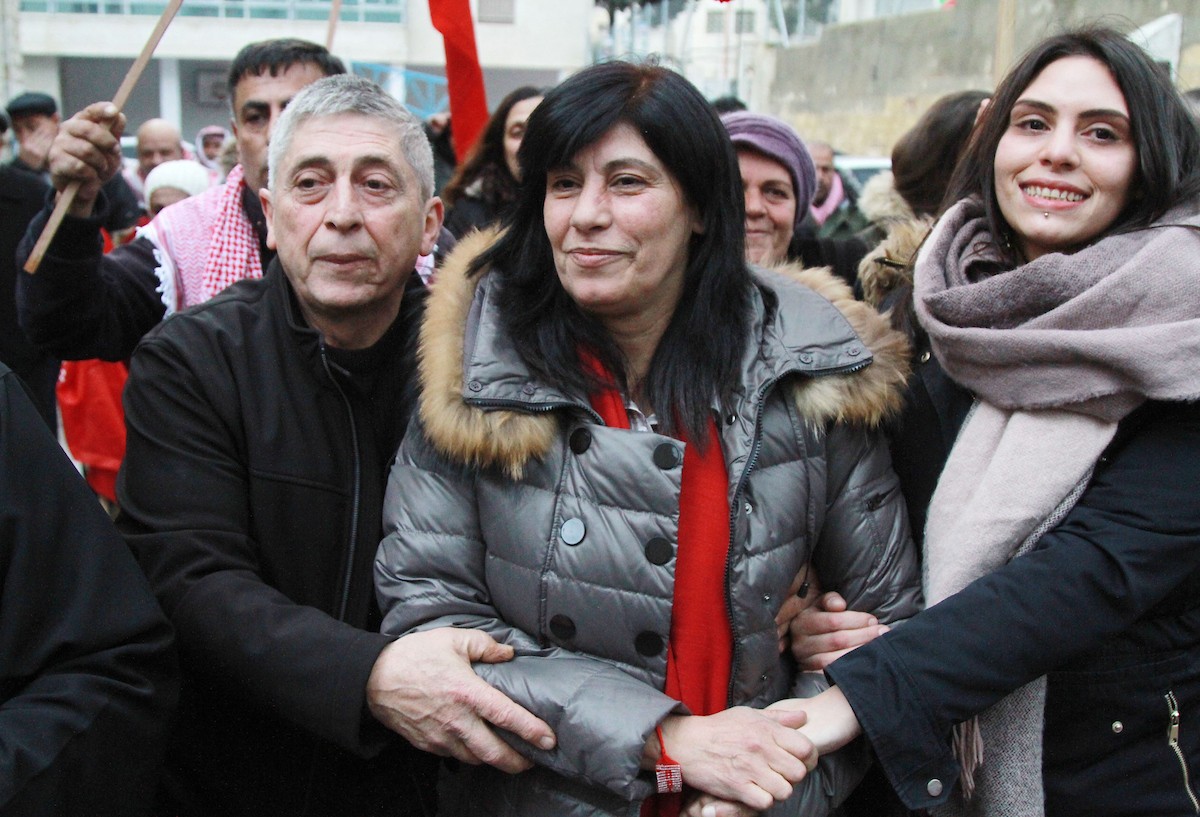
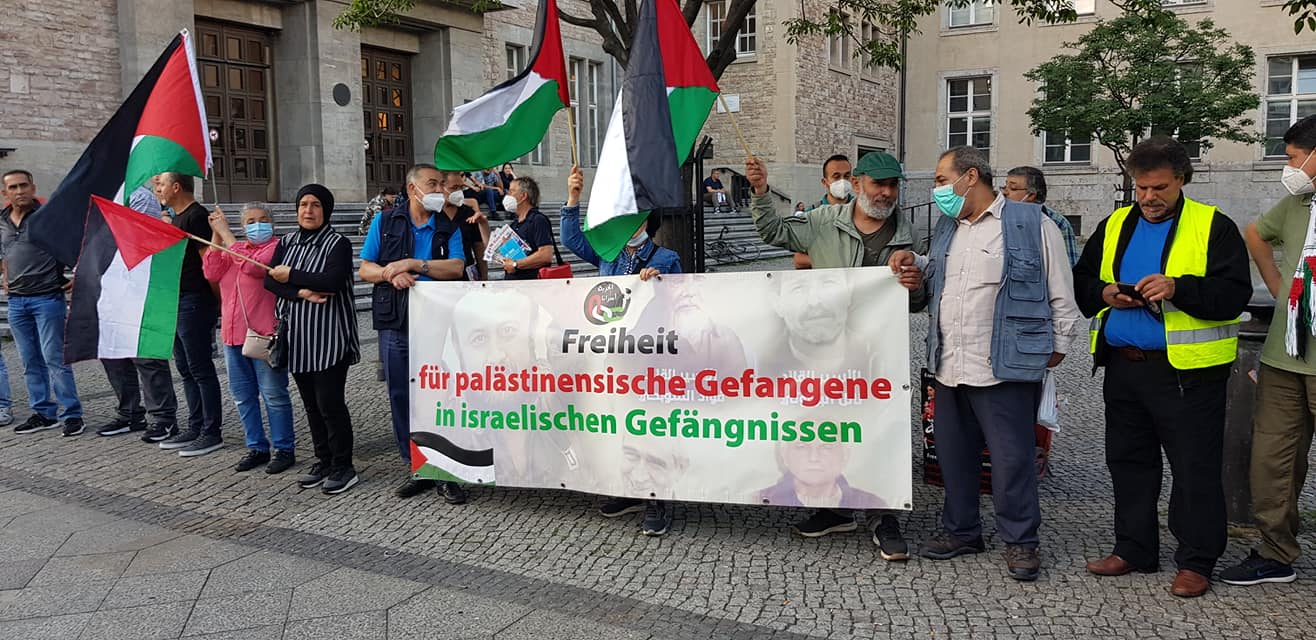
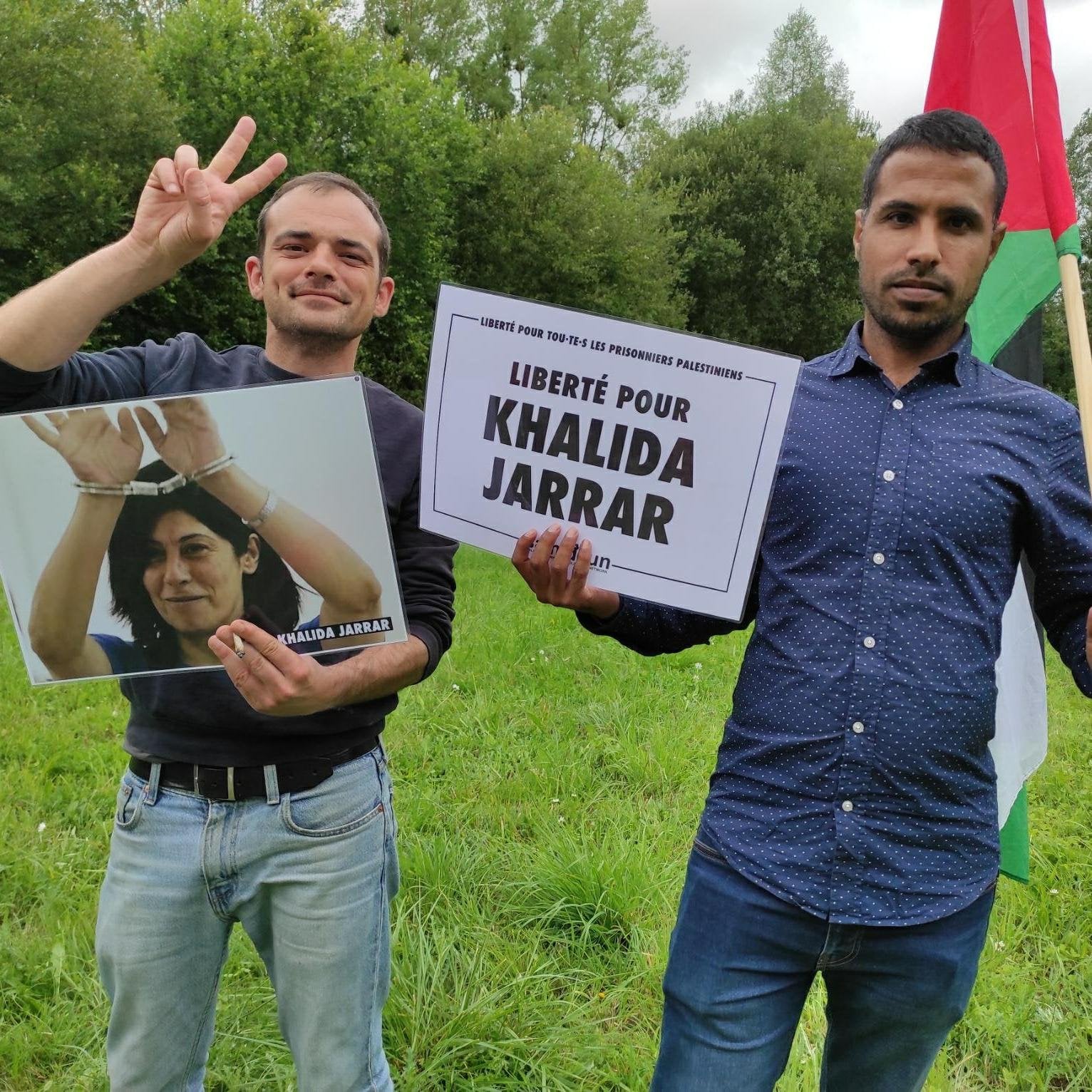
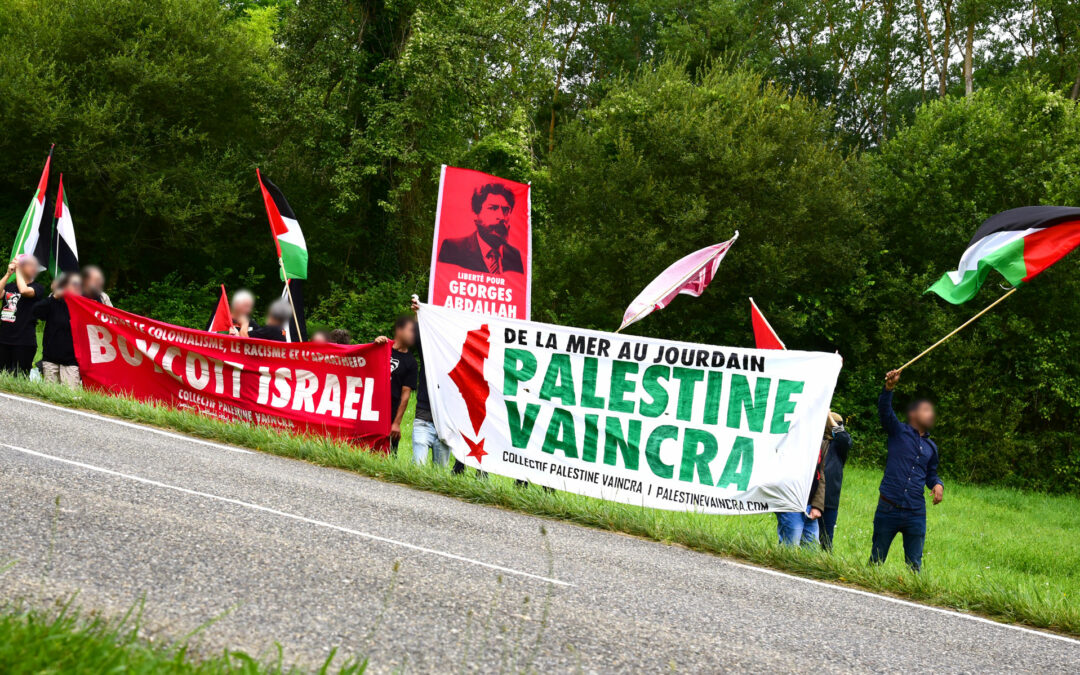
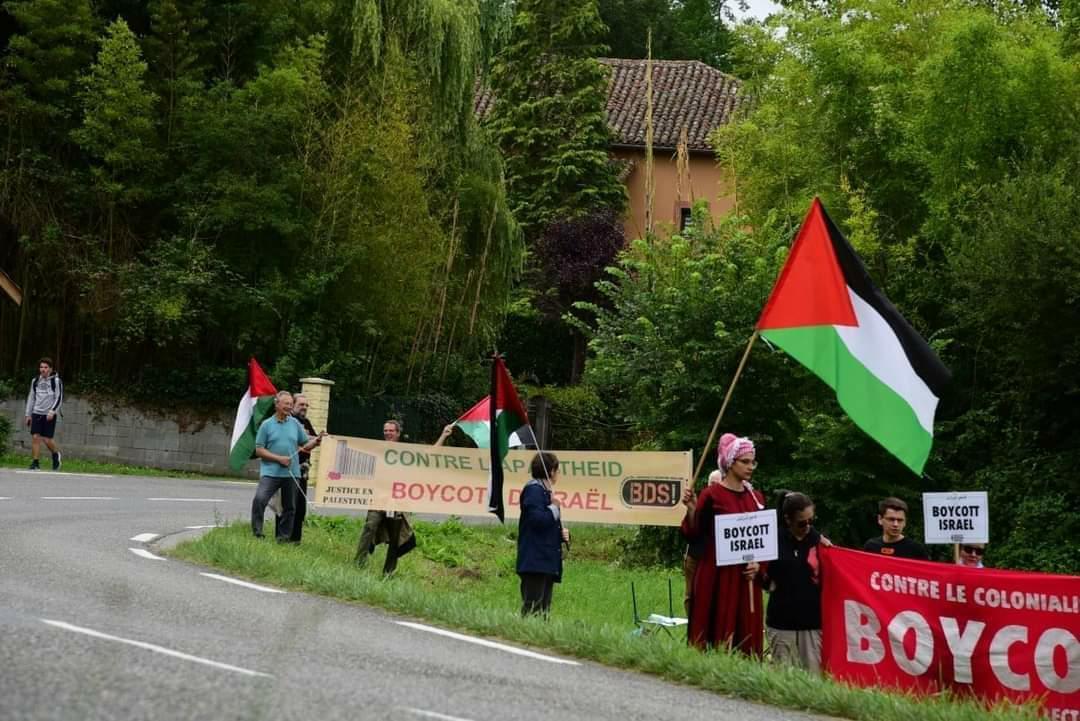
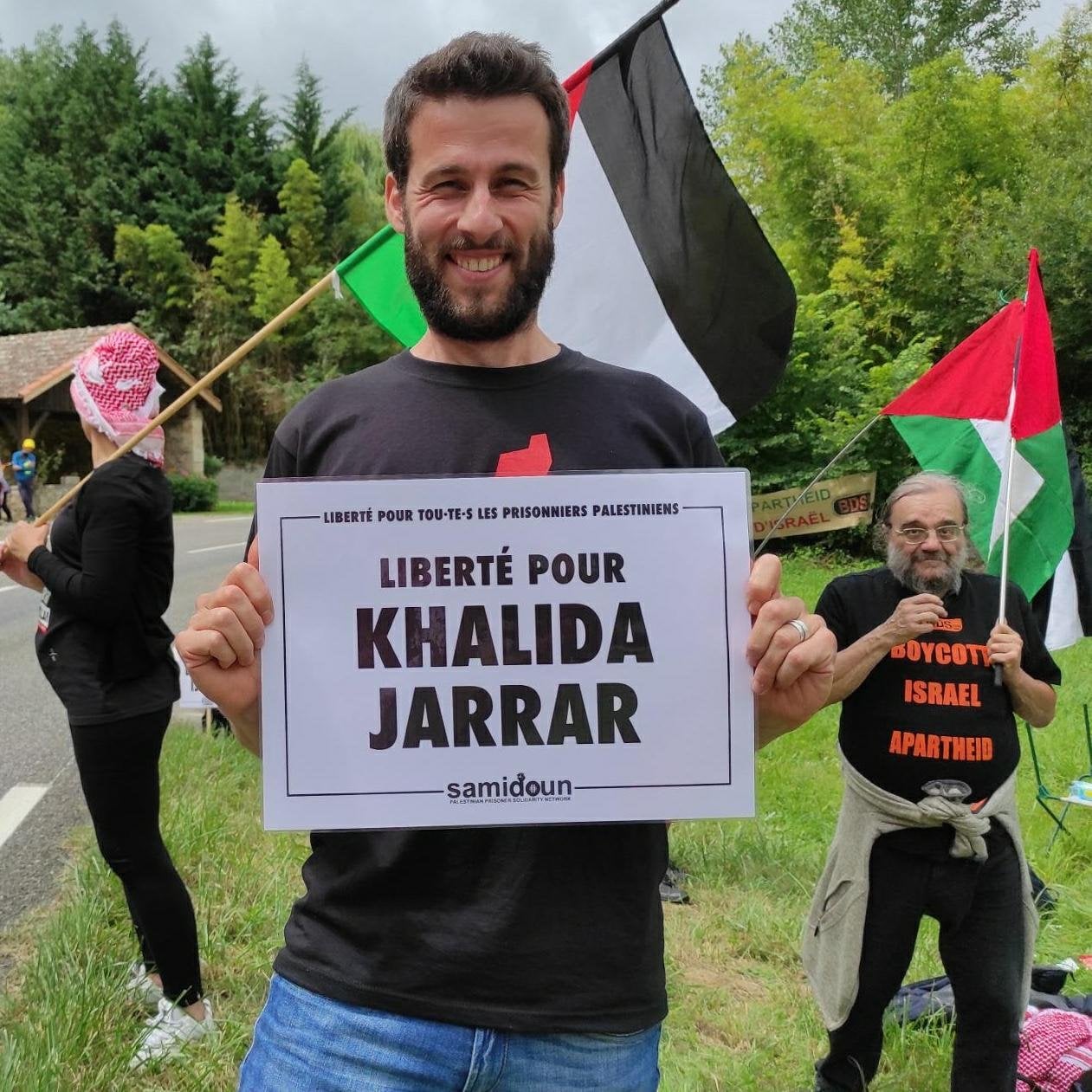
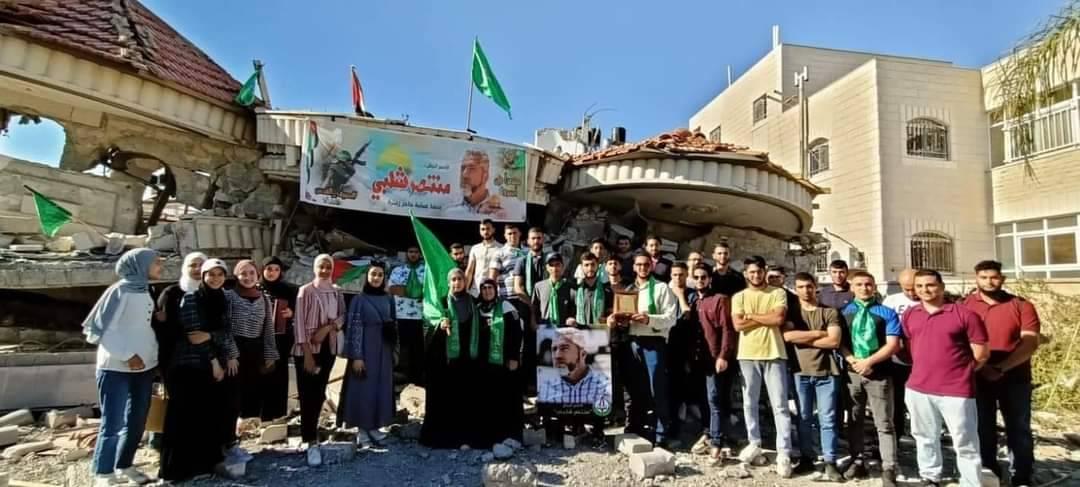
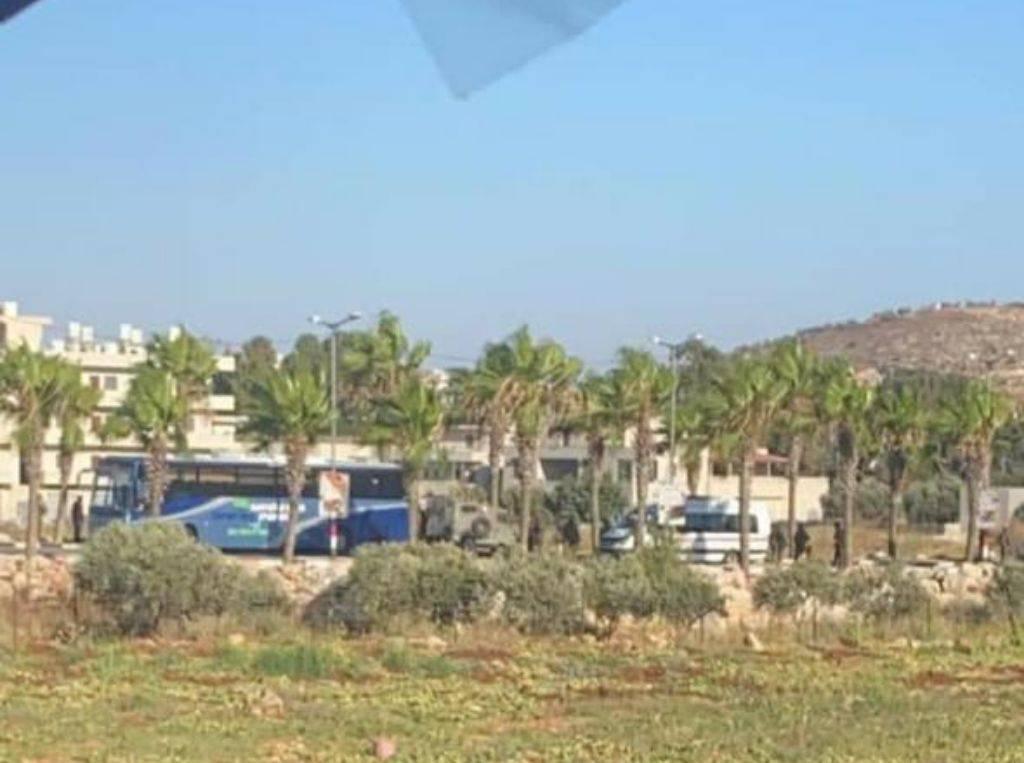
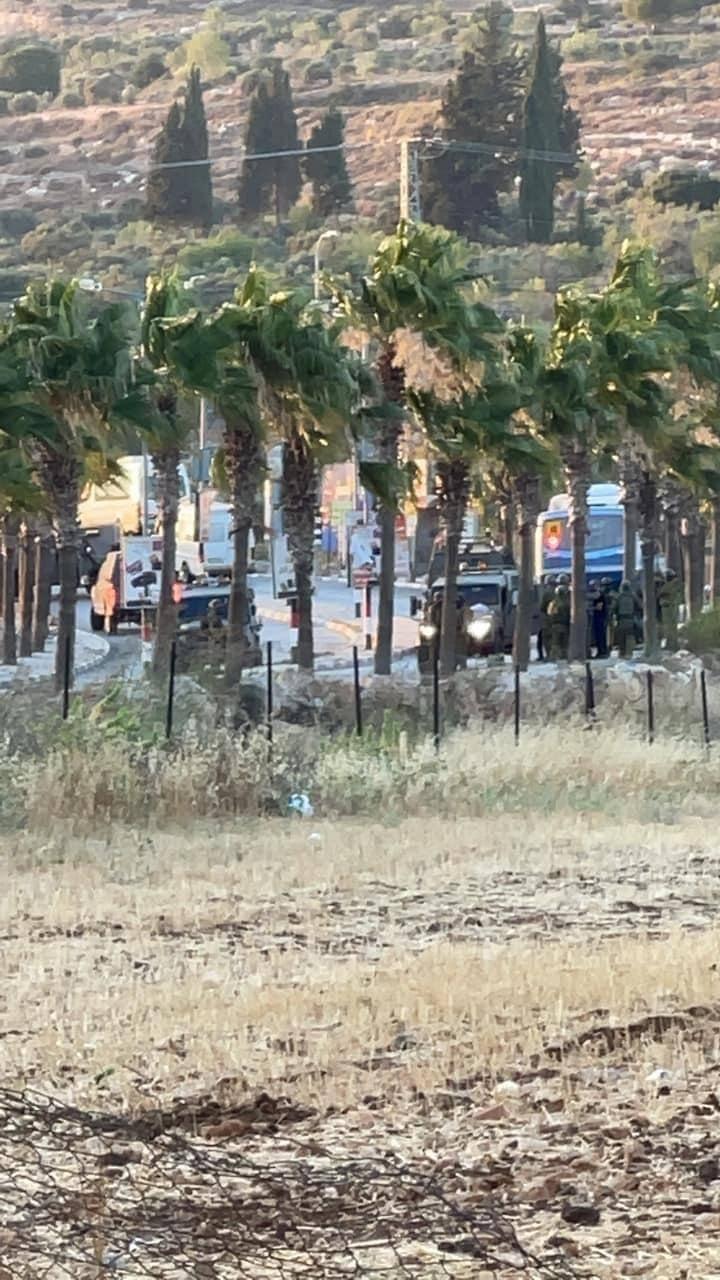
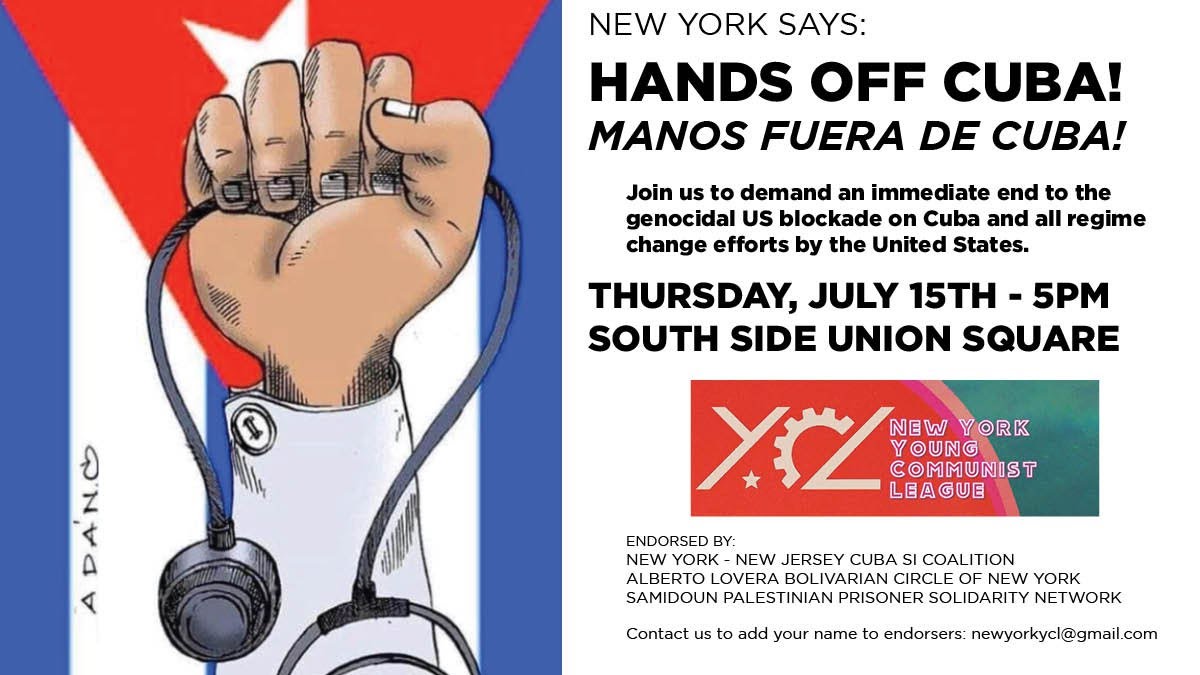
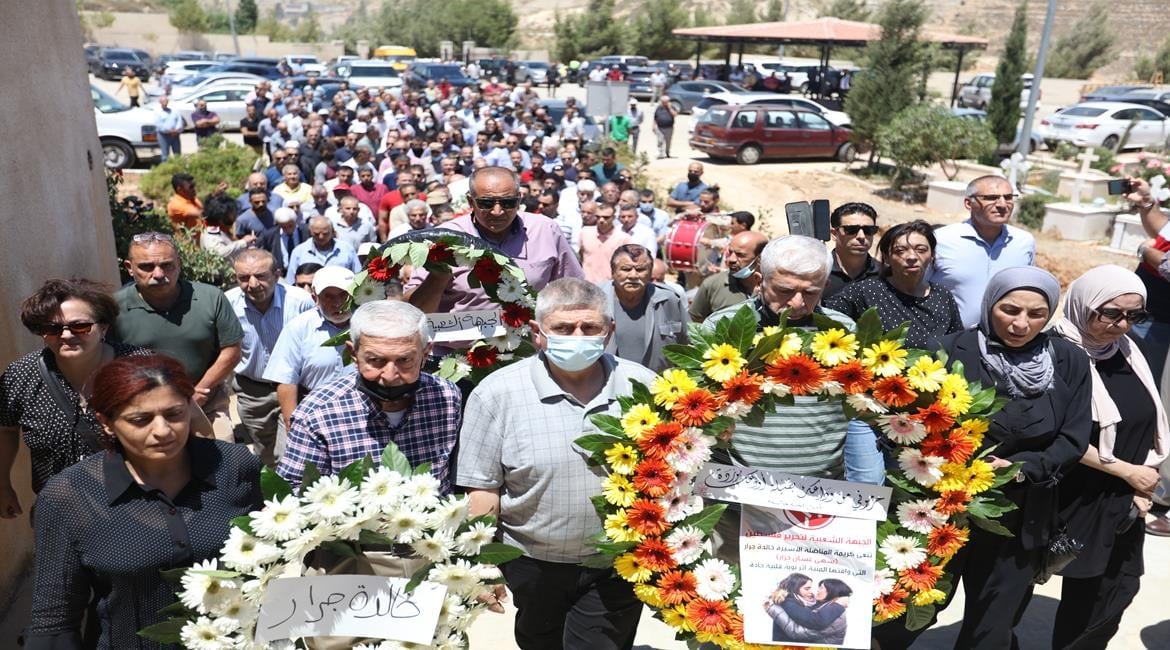
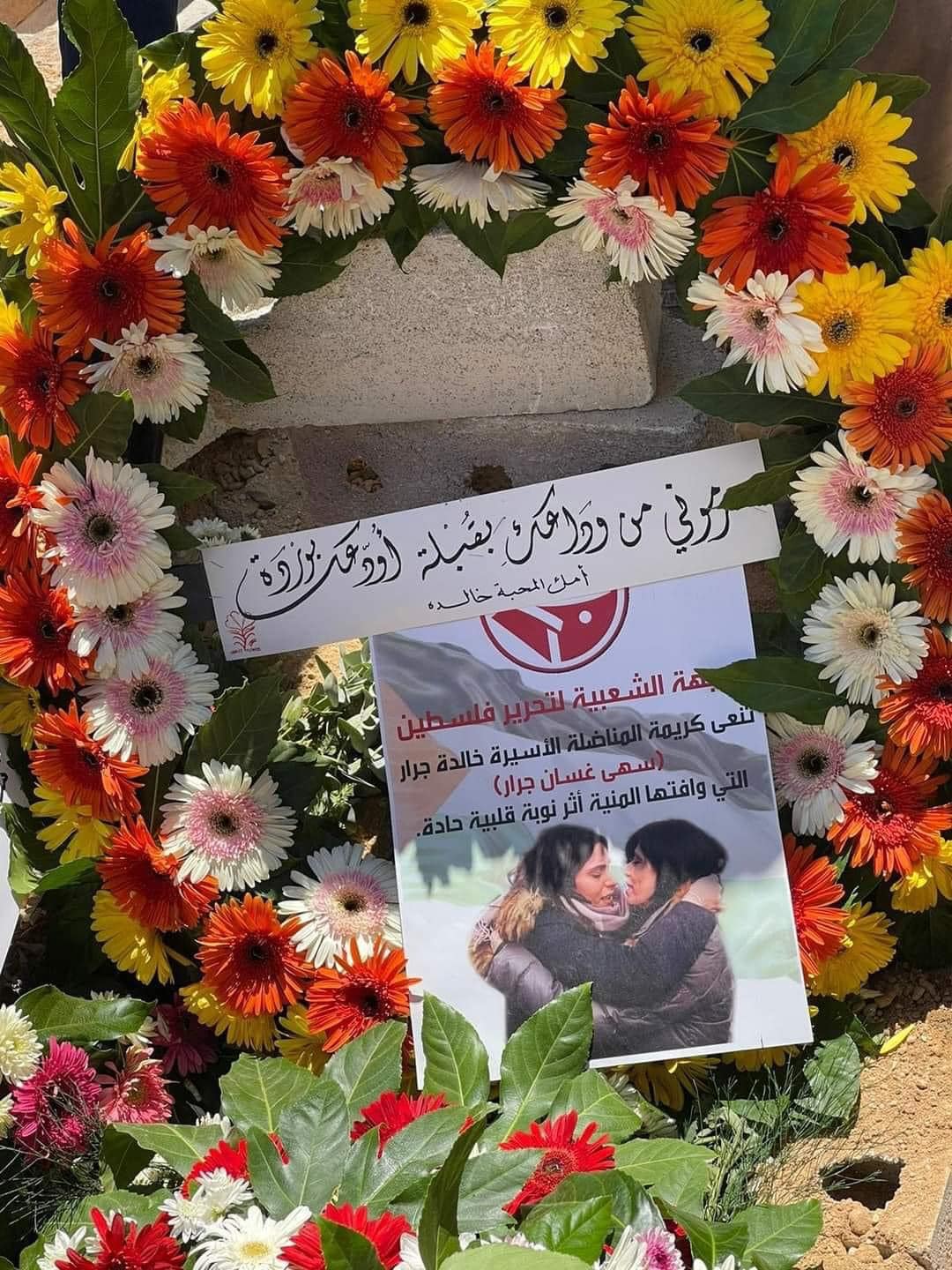
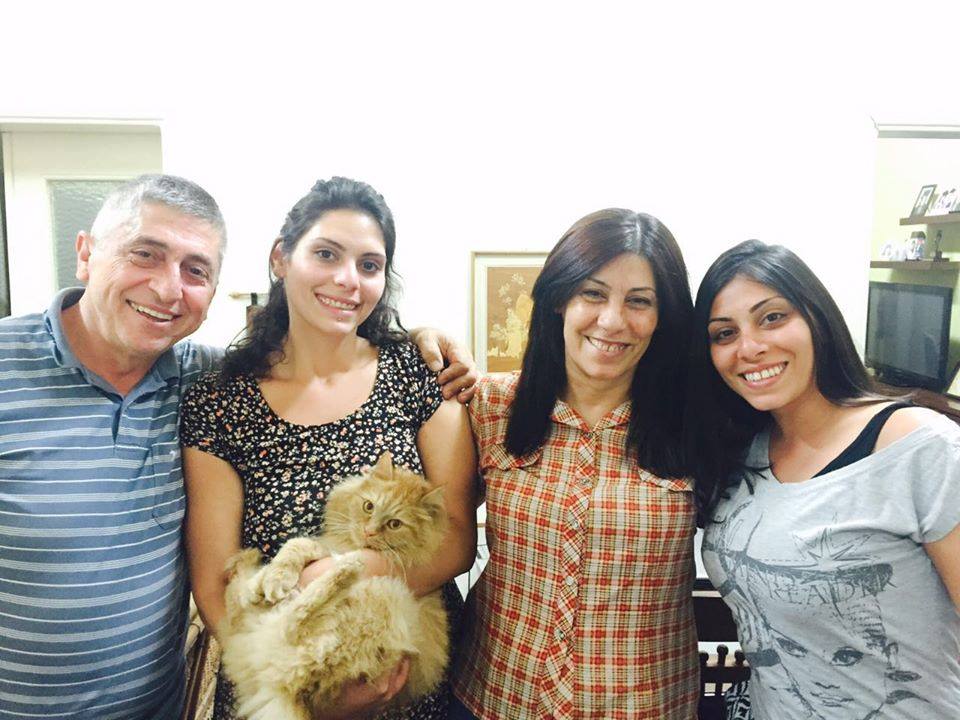

.png)
.gif)










